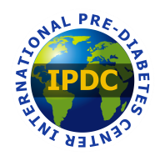1-818-714-2022

International Pre Diabetes Center
National Training & Technical
Assistance Center (NTTAC)
Supporting Quality and Safety in Community Health Centers
WE SUPPORT Community Health Centers (CHCs) To:
1. Screen for and
Address Social
Determinants of
Health (SDoH)
-
By providing Community Health Centers (CHCs) with Trained Community Outreach Navigators (CN) and Technical Assistance;
-
CN build Trust and evaluate for un-met social needs;
-
While supporting peers in their local communities with Chronic Disease Self-Management and Prevention Education
2. Identify the "Best
Practices" for
Addressing SDoH
-
CHCs serve the poor and underserved communities.
-
CHCs understand the needs of their local communities
-
When supported by trained CN: CHCs are "best suited" for addressing un-met Social Needs.
-
CHCs working with trained Outreach CN: can better screen for and address Social Determinants of Health (SDoH) and is
-
Therefore a "Best Practice" for SDOH
3. Include Data for
SDoH: to Better
Inform Patient Care
Planning
-
Data for SDoH should be collected and shared with multidisciplinary care teams
-
Data for SDoH should be incorporated into a Patient's Care Plan
-
CN can she light on challenges with unmet social needs and should be valued members of multidisciplinary care teams
-
Working in this capacity Outreach CN: close gaps for disparities.
-
By eliminating certain un-met social needs that pose barriers to Care

4. Assess the Need For, and
Implement Chronic Disease
Prevention Programs in Local
Communities
-
Diabetes Prevention Program
-
Supported by Trained/ Certified CN Coaches
-
Support made possible by collaborating with CHW Apprenticeship Programs
-
Qualified (Accredited) Programs Delivered by Trained Staff:
-
Are Reimbursable by Medicaid, Medicare, and Most Private/Public Insurance Payers
5. Improve Clinical Health
Outcomes by Implementing,
Evidence-based Programs
Delivered by Trained Staff
-
Our CHWs receive a stipend during training.
-
We build required skills upon CHW lived experience resulting in a Program Certification.
-
The Training is funded and available at no cost to qualified participants.
-
The Training Program attracts dedicated CHWs with a sense of purpose and want to give back to their communities.

-
We are Committed to the Advancement of Community Health Centers and Safety Net Clinics (CHCs): to
-
Improve Health Outcomes and Establish Health Equity;
-
Build the Infrastructure for Quality and Safety
-
CHCs supported by Community Collaborative and Collective Impact Framework Approach.

6. We Achieve Goals
With A Collective
Impact Framework
Design
-
In a Collective Impact Framework Approach: Health Systems, Foundations, Community-Based Organizations, Federal Government and Public Health:
-
Work in Partnerships with a Common Goal to improve the overall health and wellbeing of the entire community.
-
Achieving goals together, that could not otherwise be achieved by a single organization.
7. We Focus Primarily
On Quality and
Value To Patients
-
Health Systems, Foundations, Federal Government and Key Community-Based Stakeholders: Collaborate for Collective Impact!
-
The Result: Long Term Financial Support, combined with Synergistic Effects of Shared Resources: to close gaps in health disparities among minority and underserved populations
-
A community working in partnerships to better meet the needs of the community
8. We Support Patient
Safety As An
Organizational
"Built Culture"
-
Working as a One Stop Community Resource Center designed to improve the quality of services and access to health care
-
Our goal is to make Qualified Programs and Trained Staff available in local communities.
-
Many participants who learn to better manage their own chronic disease, often return to the community to provide "peer support" build trust and improve outcomes

WE SUPPORT THE SUSTAINABILITY OF PROGRAMS BY:
1. Implementing And Sustaining
The National Standards For
Clinical Care
-
We increase Access to Training and Resources:
-
For Evidence Based Programs: Chronic Disease Self-Management and Prevention Education Programs
-
Facilitate Compliance/ Adherence to National Standards Of Care
-
Implement "Best Practices" To Engage Patients And Improve Their Clinical Outcomes
2. Ensuring the Higher Rates Of
Reimbursement For Qualified
Evidence-Based Programs
-
We provide Community Health Centers with the Training and Technical Assistance to implement National, Evidence-Based Programs in Local Communities.
-
Qualified Programs delivered by Trained Staff:
-
Improve Clinical Outcomes
-
Are reimbursed at higher Rates
-
Are More Sustainable
-
Demonstrates Quality

3. We Achieve Our
Goals With
Collective Impact
-
In our Collective Impact Framework: Health Systems, Foundations, Community-Based Organizations, Federal Government, Public Health: and CHCs' work in Partnerships with a Common Agenda:
-
To improve the overall health and wellbeing of the communities that we serve..
-
Achieving goals together, that could not otherwise be achieved individually.
4. We Focus On The
Quality Of Care and
Value To Patients
-
Quality and Value: are Trademarks;
-
That are imbedded in the Organization's Culture.
-
Health Systems, Foundations, Federal Government and Key Community-Based Stakeholders, and CHCs': Collaborate for Collective Impact!
-
The Result: "Collective Impact!" and desired Goals achieved!
5. All Staff Engage In
Advancing A
Culture of Safety
-
Safety is: Do No Harm;
-
And includes: Medication Safety; Safer Blood Pressure and Diabetes Control; Chronic Disease Self-Management and Prevention Education;
-
Including Screening for AIDS/HIV, Depression, Diabetes & Hypertension;
-
Appropriate Linkages to Care and Services
-
Aligning of culturally sensitive resource to bridge the gaps in patient's need.

6. Adherence To Standards
Of Care And Data Guided
Performance
-
In our Collective Impact Framework: Health Systems, Foundations, Community-Based Organizations, Federal Government, Public Health: and CHCs' work in Partnerships with a Common Agenda:
-
To improve the overall health and wellbeing of the communities that we serve..
-
Achieving goals together, that could not otherwise be achieved individually.
7. Community Health Worker
Peer Support: To Improve
Patient Self-Care
-
Many CHWs have cultural and lived experience that can be shared with peers in local communities
-
CHW Peer-Support are trained, trusted members of their community
-
They understand the cultural and language barriers
-
They can play a critical role in linking patients to needed community resources
-
In re-engaging patients with their providers
